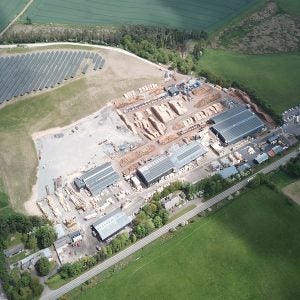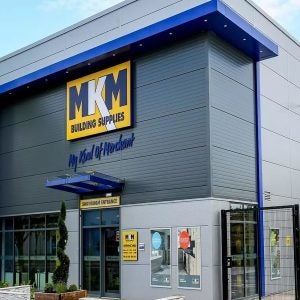The UK timber frame industry has rounded on a BBC London news report which questioned the fire safety of completed timber frame buildings.
The report, which mistakenly used images of burning concrete structures in its coverage and raised the spectre of the Great Fire of London which destroyed a third of the city’s wooden buildings, quoted architect Sam Webb and chairman of the London Fire Authority Brian Coleman, both of whom suggested completed timber structures represented a fire risk.
Mr Webb, whose comments initially appeared in RIBA Journal, said a fire test on a multi-storey timber frame building within TRADA’s TF2000 project in 1999 resulted in a second, unexpected cavity fire breaking out – something he said was not covered in the TF2000 report.
Mr Coleman said timber frame was quicker and “cheaper” and questioned whether completed buildings were completely safe because occupants may drill holes in walls, allowing timber to become exposed.
UKTFA’s Geoff Arnold told TTJ he was “frustrated” at the coverage, saying references to the Great Fire of London were “pathetic” and showed a lack of knowledge of modern fire protection.
“Sam Webb’s article was more emotionally based and a bit of a rant rather than a constructive commentary,” he said. “It would have been much more helpful if he had worked with the UKTFA to discuss his concerns.”
Mr Arnold pointed out that the BBC London report opened with shots of multi-storey concrete buildings, not timber frame, on fire.
And he said the BBC was unhelpful and “evasive” when the UKTFA tried to make its points. But the UKTFA has submitted a full response to RIBA Journal.
He said the BRE’s project was successful in assessing a multi-storey timber frame property’s ability to withstand the 60-minute fire compartment test. And he said a further cavity fire which occurred at the test site was properly investigated by a Chiltern Fire report in 2003.
“It should be noted that the Chiltern Fire report statistics showed that 0.07% of fires start in the cavity wall and of the eight fires identified and investigated by Chiltern Fire, the majority were caused by trades people not using tools, such as blow lamps, correctly,” said Mr Arnold.
TRADA marketing manager Rupert Scott said he was “extremely concerned” at the BBC’s handing of the topic.
“We have got one or two issues which the timber frame industry knows, accepts and has to get to grips with, in particular concerning the risk of fire during the construction phase.
“What concerns me is this article throws together a whole load of different things around fire,” he said. “It blows the whole thing into something much larger.
Mr Scott said Mr Webb’s statement that completed timber frame buildings are very vulnerable to fire was not true and unsupported by evidence.
Mr Scott also refuted any suggestion that the existence of the second fire in the TF2000 test was covered up, pointing out that the 2003 follow-up study involved government agencies.






